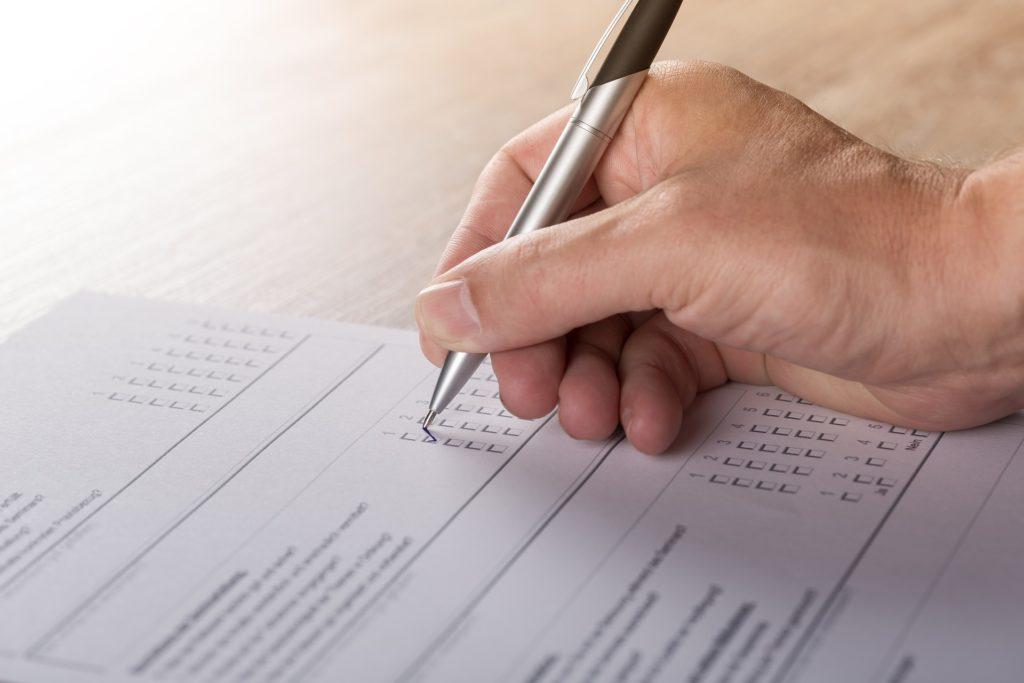Unless you’re an octopus, you’ll need an extra pair of hands to help you organise a successful event. A good event team is an invaluable asset to you as an event planner.
But how do you know how well your team is doing? By working out a way to evaluate their performance, so you know what works and what doesn’t.
Read on to learn about how to define success criteria for your event and measure your team’s performance against them.
Billetto is a ticketing platform that helps you manage, promote, and host events. Set up an event page and start selling tickets in 5 minutes.
CREATE YOUR EVENT >>
1. Define the criteria for event team success
Before you can evaluate your team—or your event as a whole for that matter—you need to define your success criteria. Otherwise, you have nothing to measure your performance against.
Your success criteria could be:
- Tickets sold
- Funds raised
- Social media engagements
- Event survey feedback
- Team evaluation forms
Whatever criteria you decide on, make sure that you use it to establish a clear baseline. That way, both you and your team know what’s expected.
Tip: Read our guide on how to evaluate events to help you work out your criteria.
2. Use KPIs for your event team
If you’re organising a major event that involves a proportionally large staff, you might want to consider using KPIs (key performance indicators) to evaluate your team members.
Team member KPIs can help you…
- Find out who does the most (and least) amount of work
- Understand which tasks members find challenging
- Create transparency on the event team
- Increase everyone’s overall productivity
Some managers consider team member metrics a waste of time, while others swear by them. It depends on your approach to managing your event team.

Here are some of the metrics you can use to evaluate your event team:
- Attendance (late showers, early leavers, and sick days)
- Helpfulness (which members are seen by others as the most helpful)
- Efficiency (how fast are they at their tasks)
- Initiative (how often do members take ownership and contribute with ideas)
- Quality (how well do members execute their tasks)
When you evaluate each team member’s performance, remember to look out for any positive or negative outliers.
Positive outliers indicate that the team member is doing something extraordinary that the rest of the team could benefit from doing, too.
Conversely, negative outliers indicate that an individual team member is struggling. That lowers productivity for that member at best, and makes the whole team less effective at worst.
Tip: Use this resource to help you work out your event team KPIs.
3. Note down observations during the event
You should make observations on what happens during the event. It will undoubtedly be a busy day, so it can be helpful to actually write down what you observe.
Once the dust has settled, you can review the notes. They will be an excellent qualitative addition to the numbers you use to measure the event’s success.
4. Ask for feedback from the guests on the day
You can also supplement your evaluation data with feedback on the day. It can’t hurt to ask your guests if they feel they’ve been taken care of by your team.
In fact, you can encourage guests to review the event online and mention exceptional team members by name.
5. Ask guests in post-event surveys
A post-event survey is an excellent tool to help you improve future events. You can use it to gauge what the guests thought about the venue, the entertainment, the food, and your team.

You can include open-ended and multiple-choice questions about your team’s performance in your post-event survey.
Tip: Read our guide on free event survey tools you can use to collect feedback.
6. Measure online data
If your team is helping you out with email campaigns and social media promotion, you can also use the success of those initiatives to measure the team’s performance.
For instance, if a team member is tasked with responding to followers on social media, you can tally up the number of responses they’ve written to potential guests.
Tip: Read about what numbers to look for when you measure your online promotion success.
7. Debrief the team after the event
It’s good practice to hold a debrief meeting with your team after the event. It will give you an opportunity to revisit the goals for the event and see if you achieved them.
It will also allow you to address any critical challenges as a group. Use the debriefing to brainstorm any potential solutions to the difficulties you’ve experienced before and during the event.
Tip: Read about how to debrief your event team after the event.
8. Speak to each member individually
Not everyone is comfortable speaking in front of a group, particularly if it concerns personal issues or criticism of other team members.

If you’re organising a smaller event, you should consider debriefing each team member individually. It will give you much more insight into how they perceived the event.
Tip: Use these sample questions to ask during a performance review for inspiration.
9. Assess your level of involvement
As the event organiser and team manager, it’s crucial that you evaluate your own performance. You’re the captain of the ship. Without you, it will sink.
There are many ways to fail as a manager, even when you have the best intentions.
One of them is to get so involved in granular tasks that you lose sight of the big picture. Conversely, you can also be so detached from your team that you become inaccessible.
Take some time to reflect on your own involvement in the team. And don’t be afraid to ask your team to give you feedback on your performance as the event manager.
Tip: Read about how to evaluate yourself as a leader.
10. Consider external factors
When you assess your event team, you should also factor in all the things that are outside of your team’s control.
You can measure how well your team does at promoting your event online, but you can’t predict the impact of competing events being marketed at the same time.
On a similar note, you can measure how well your team serves the guests at an outdoor event, but you can’t predict sudden weather changes that affect their job.
11. Analyse everything
Once you’ve looked at all the numbers, debriefed the team, and gathered feedback from the attendees, it’s time to add it all together.
By now you should have the following ways to evaluate your team’s performance:
- Success criteria for the event
- Event team KPIs
- Personal observations during the event
- On-site feedback from the attendees
- Post-event survey results
- Online data
- Suggestions from team debriefing
- Input from individual team member interviews
- Feedback on your role as an event manager
- Any external factors outside of your control
It’s up to you whether to go for qualitative or quantitative data when evaluating your team’s performance. If you’re in doubt, use a mix of both to get a more detailed picture.
Billetto is a ticketing platform that helps you manage, promote, and host events. Set up an event page and start selling tickets in 5 minutes.
CREATE YOUR EVENT >>
Plan the next event
Now that you’ve evaluated your event team’s performance, it’s time to plan the next event. Hopefully, you’ll have a lot of valuable new insights that can help you improve.
Good luck, and feel free to share any suggestions with us in the comments below.





Leave a Reply